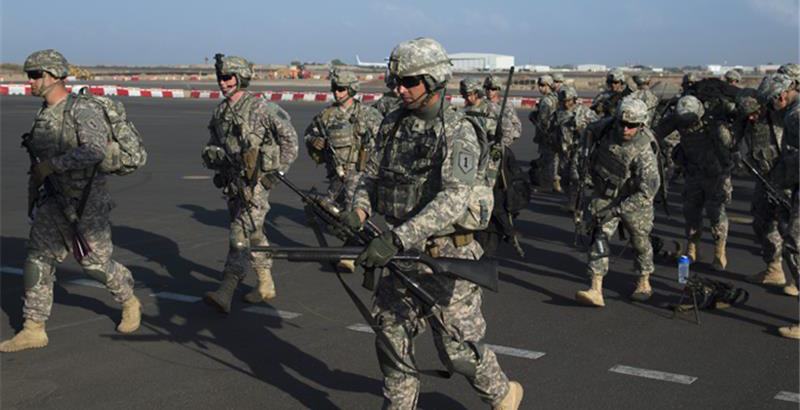After the recent raid of the US Special Forces in Yemen, it will be more difficult to conduct ground operations on the territory of the country for the US.

Photo: DoD / Tech. Sgt. Micah Theurich / US Air Force / Released
UPD: Yemen did not issue an outright ban on future American-led missions, though the country has called for a ‘reassessment’ of a raid, conducted by the US Special Forces on January 28, the Washington Post newspaper reported on Wednesday, citing a Yemen’s top diplomat.
Yemeni Foreign Minister Abdul-Malik al-Mekhlafi also told the AP news agency that “Yemen continues to cooperate with the United States and continues to abide by all the agreements,” adding that the Yemeni government “is involved in talks with the US administration on the latest raid.”
“It’s not true what’s being said,” a senior Yemeni official said, talking about the Yemeni ban on operations of the US Special Forces. “We and the international community are working side-by-side to fight terrorism,” he said.
In addition, the US Central Command has not stopped its operations on the territory of the country.
"We have not been directed to stop any operations against al-Qaeda in the Arabian Peninsula," US mil CENTCOM spox about end to Yemen raids
— Lucas Tomlinson (@LucasFoxNews) February 8, 2017
US President Donald Trump, who announced the fight against international terrorism as one of his main priorities, met with the first failure – after the recent raid of the US Special Forces on Al-Qaeda headquarters in Yemen led to the deaths of civilians, the authorities of the Arab country have expressed a strong protest against such special operations of Washington, the Kommersant newspaper reported.
The problem of the US is worsened by the fact that the current Yemeni government are completely dependent on Saudi Arabia that means that the demarche, taken by them against the White House, could be sanctioned by one of the most influential countries in the Arab world.
The immediate occasion of the tough statement of the Yemeni authorities was results of the US SEAL’s raid on the headquarters of the Al-Qaeda group in the Arabian Peninsula (AQAP), carried out on January 29, during which 14 terrorists, one US soldier and at least ten civilians, including women and children, were killed.
According to an official version of the Pentagon, the operation had “purely a reconnaissance nature”: the aim was to seize computers and mobile phones of terrorists, as well as data on activities of the AQAP. But in fact, the special forces’ soldiers had one more task – to capture or kill AQAP commander Qasim al-Rimi, who is considered by the US as one of the most dangerous terrorists in the world. However, the US Special Forces did not manage to capture or kill him. Last Sunday, al-Rimi published online a video, in which he said that the “madman from the White House received a slap in the very beginning of his way.”
At the moment, Yemen actually is a divided state. Its northern regions, including the capital of Sanaa, are controlled by the pro-Iranian Shiite movement of Ansar Allah. An Arab coalition, created by Saudi Arabia, which supports President Abdrabbuh Mansour Hadi, recognized by the world community, has been fighting against the movement.
The government of Hadi came to power virtually as a result of a military operation, organized by Riyadh and its allies. Given this circumstance, it is difficult to imagine that the loud demarche against the new US administration was taken without an approval of Saudi Arabia. Consequently, the Donald Trump’s team runs the risk to get not only a traditional partner and ally in the face of Riyadh, as it usually was, but also a tough opponent.
At the same time, an advisor to the director of the Russian Institute for Strategic Studies, Elena Suponina, told the newspaper that there also could be another reason for such a statement of the Yemeni government – the Yemeni authorities were forced to react to the actions of the US Special Forces “under pressure of people.”
She reminded that Yemen was among the seven countries with predominantly Muslim population, for which Trump tried to impose a ban on entry into the US. On the other hand, according to Suponina, the Yemeni authorities would not be able to stay without military and technical assistance of Washington in the fight against terrorism. In this way, the expert suggested that there would be “backroom bargaining” between the Trump’s administration and the Yemeni government.





